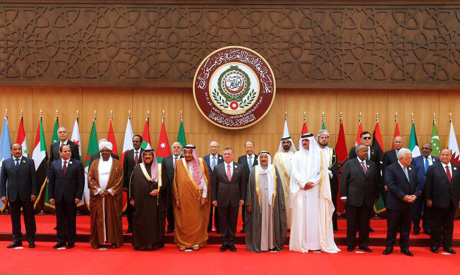UPDATED: Egypt, Saudi Arabia, Bahrain UAE, and Yemen cut ties to Qatar
The government of President Abed Rabbo Mansour Hadi says it severed ties with Qatar in part over is support of extremist groups in Yemen “in contradiction with the goals announced by the countries supporting the legitimate government”.

Qatar had participated in the coalition since March 2015.
Qatar on Monday slammed the decisions of three Gulf states and Egypt to sever ties with it, saying they were “unjustified” and aimed to put Doha under political “guardianship”.
“The measures are unjustified and are based on false and baseless claims,” the Qatari foreign ministry said in a statement, referring to the unprecedented steps taken by Saudi Arabia, Bahrain, the United Arab Emirates and Egypt.
“The aim is clear, and it is to impose guardianship on the state. This by itself is a violation of its (Qatar’s) sovereignty as a state,” it added.
The dispute between Qatar and the Gulf’s Arab countries started over a purported hack of Qatar’s state-run news agency. It has spiraled since.
The Abu Dhabi-based airline Etihad says it is suspending flights to Qatar amid a growing diplomatic rift.
Etihad said on its website Monday its last flights “until further notice” would leave early Tuesday morning.
Etihad gave no reason for the decision. It is the flag carrier of the United Arab Emirates.
Egypt announced the closure of its airspace and seaports for all Qatari transportation to protect its national security, the foreign ministry said in a statement.
“Qatar’s policy threatens Arab national security and sows the seeds of strife and division within Arab societies according to a deliberate plan aimed at the unity and interests of the Arab nation,” the statement read.
Egypt accused the Gulf Arab state of supporting “terrorist” organisations including the Muslim Brotherhood.
Bahrain, Egypt, Saudi Arabia and the United Arab Emirates all announced they would withdraw their diplomatic staff from Qatar, a gas-rich nation that will host the 2022 FIFA World Cup. Saudi Arabia also said Qatari troops would be pulled from the ongoing war in Yemen.
Qatar Airways said on its official website on Monday that it had suspended all flights to Saudi Arabia.Qatar is also home to the sprawling al-Udeid Air Base, which is home to the U.S. military’s Central Command and some 10,000 American troops. It wasn’t clear if the decision would affect American military operations. Central Command officials did not immediately respond to a request for comment.
Bahrain blamed Qatar’s “media incitement, support for armed terrorist activities and funding linked to Iranian groups to carry out sabotage and spreading chaos in Bahrain” for its decision. Other countries issued similar statements.
The decision comes after Qatar alleged in late May that hackers took over the site of its state-run news agency and published what it called fake comments from its ruling emir about Iran and Israel. Its Gulf Arab neighbors responded with anger, blocking Qatari-based media, including the Doha-based satellite news network Al-Jazeera.
Qatar long has faced criticism from its Arab neighbors over its support of Islamists. The chief worry among them is the Muslim Brotherhood, a Sunni Islamist political group outlawed by both Saudi Arabia and the UAE as it challenges the nations’ hereditary rule.
Gulf countries led by Saudi Arabia fell out with Qatar over its backing of then-Egyptian President Mohamed Morsi, a Brotherhood member.
In March 2014, Saudi Arabia, the United Arab Emirates and Bahrain recalled their ambassadors from Qatar over the rift.
Eight months later, they returned their ambassadors as Qatar forced some Brotherhood members to leave the country and quieted others. However, the 2014 crisis did not see a land and sea blockade as threatened now.
In the time since, Qatar repeatedly and strongly denied it funds extremist groups.
However, it remains a key financial patron of the Hamas-controlled Gaza Strip and has been the home of exiled Hamas official Khaled Mashaal since 2012.
Western officials also have accused Qatar of allowing or even encouraging funding of Sunni extremists like al-Qaida’s branch in Syria, once known as the Nusra Front.
The crisis also comes after U.S. President Donald Trump’s recent visit to Saudi Arabia for a summit with Arab leaders. Since the meeting, unrest in the region has grown.
At that Saudi conference, Trump met with Qatar’s ruling emir Sheikh Tamim bin Hamad Al Thani.
“We are friends, we’ve been friends now for a long time, haven’t we?” Trump asked at the meeting. “Our relationship is extremely good.
Source:http:english.ahram.org.eg